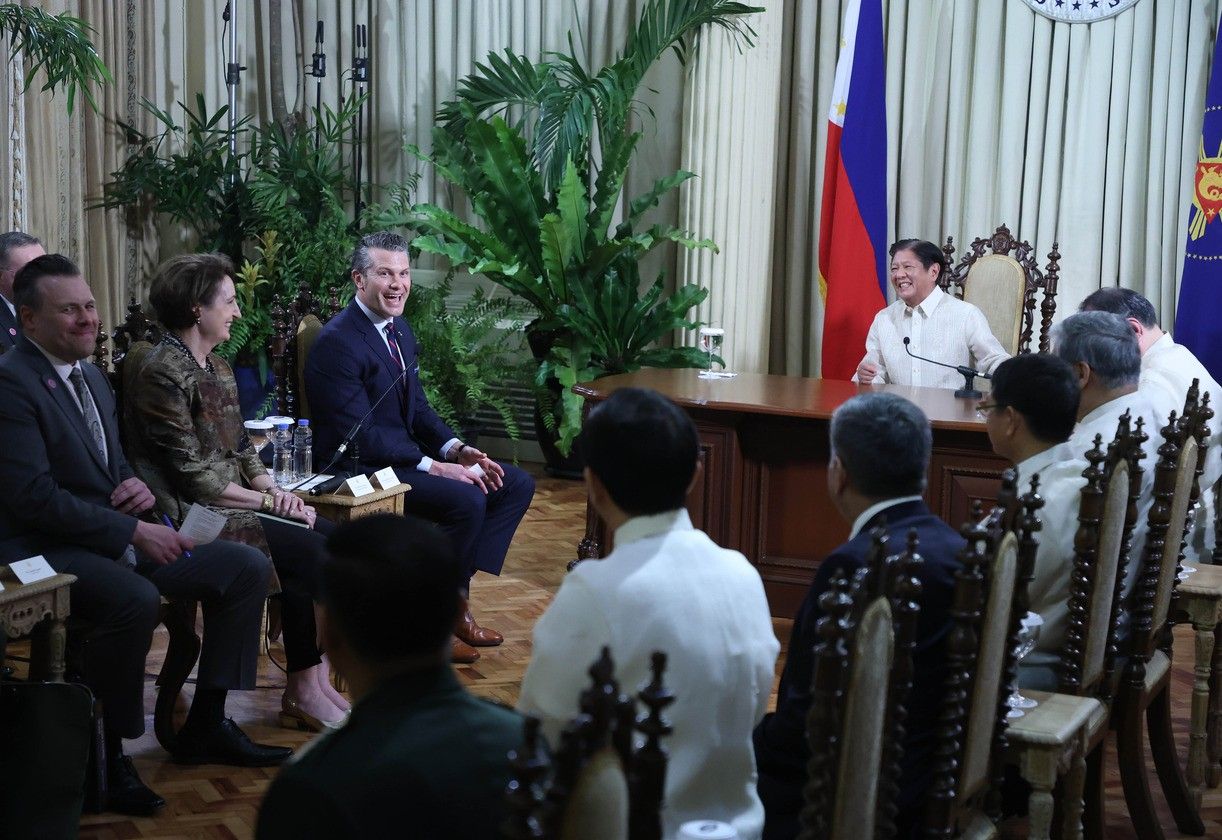Forging a vibrant future for Japan-Philippines-United States trilateral partnership

April marks the first year anniversary of the founding of the trilateral partnership of Japan, Philippines and the United States.
Anchored on the shared commitment to the rule of law, the trilateral arrangement is a clear demonstration of the power of collaboration. It facilitates an all-encompassing approach to foster regional security and economic development.
For the Philippines, the trilateral partnership is a milestone for several reasons.
On defense and security, it institutionalizes deterrence especially in light of asymmetric security challenges in the West Philippine Sea. Both Japan and the United States have demonstrated consistency and reliability in supporting the Philippines in safeguarding its waters.
This is exemplified in the Multilateral Maritime Cooperative Activities which seek to enhance military interoperability and operational readiness to respond to security challenges.
Since April last year, the three countries have successfully conducted MMCAs together, with the latest one in March 2025. A total of eight MMCAs have been conducted which featured the participation of other like-minded nations including Australia, Canada, and New Zealand.
Another key development is the visit of United States Defense Secretary Pete Hegseth to the Philippines. The Philippines as the first destination of the defense chief’s first official overseas visit sends a clear and reassuring message: the alliance remains ironclad. Moreover, it signals a powerful message about Manila’s strategic importance to Washington.
In Hegseth’s meetings with President Marcos Jr. and Defense Secretary Teodoro, the United States underscored its enduring commitment to the 1951 Mutual Defense Treaty and the Enhanced Defense Cooperation Agreement.
Clearly, the visit of Hegseth not only reaffirmed the alliance; it further elevated the partnership. Initiatives including the deployment of more advanced capabilities such as the Navy-Marine Expeditionary Ship Interdiction System (NMESIS) and unmanned surface vessels in the upcoming Balikatan Exercises will substantially boost deterrence.
In addition, the two countries are also expected to conduct advanced bilateral Special Operations Forces in Batanes which is a critical area for the Philippines. Batanes serves as the country’s first line of defense, being the northernmost part of the country. It is also a strategic area to defend the eastern seaboard.
Moreover, the two countries will also launch a bilateral cybersecurity campaign to reduce vulnerabilities and capacitate the workforce.
The two allies will also pursue defense industrial cooperative efforts, which are expected to contribute to a comprehensive security partnership and trigger an influx of economic activity. Priority areas include unmanned systems, ammunition components, critical minerals, logistics support, and airspace integration among others.
This initiative is even more essential in light of the Philippines’ Self-Reliant Defense Posture Program, which seeks to fully harness the potential of the defense industry amid security challenges.
Alongside the strengthening of US-PH alliance, Manila is also reinforcing its relations with Tokyo. Even prior to the formation of the trilateral partnership, Japan has consistently showcased its unwavering commitment to expand security ties with the Philippines.
Last month, Japan Maritime Self-Defense Force Chief Admiral Saito Akira met with Philippine Navy Chief VADM Jose Ma. Ambrosio Ezpeleta to discuss modernization efforts and joint maritime security initiatives.
Japan is also expected to participate as a full-fledged participant in this year’s Balikatan Exercises, following the ratification of the Reciprocal Access Agreement.
These security engagements, strengthened through the trilateral partnership, are in line with the current administration’s strategic direction to reinforce and expand its partnerships.
This move is supported by eight out of 10 Filipinos who believe that the Philippines must further strengthen its alliance with other countries through joint patrols, joint sails, and joint military exercises to assert and defend the Philippines’ territorial and economic rights in the West Philippine Sea.
Manila’s pursuit of robust partnerships is not only limited in security. It is also reflected in the economic front.
For instance, Manila and Tokyo recently reaffirmed their commitment to advance infrastructure development. In the 15th meeting of the Philippines-Japan High-Level Committee on Infrastructure Development last month, the two countries agreed to engage in multi-sectoral cooperation. A ceremonial signing for five key infrastructure projects was held.
Among the key highlights is the Davao City Bypass Construction Project which is projected to accelerate Mindanao’s economic growth.
Major flood control projects were also included such as the Pasig-Marikina Channel Improvement Project Phase IV and the Cavite Industrial Area Flood Risk Management Project. Both undertakings are geared towards flood management.
Evidently, Japan is a legacy partner of the Philippines for infrastructure development. It plays a pivotal role for growth and modernization. This partnership will remain integral in championing a sustainable, resilient, and integrated infrastructure landscape in the Philippines – one of the major thrusts of the current administration.
--
The developments above show that amid the changing geopolitical landscape, including shifts in political and power dynamics, the trilateral partnership remain as strong as ever. It is a partnership where the gains of the three nations have a resounding effect to the regional architecture.
Consequently, latest developments suggest a promising future for the partnership. It is projected to continue to flourish with the expansion of existing engagements and new avenues for cooperation being explored.
Now is the time for the Philippines to amplify its role in shaping regional security and diplomacy. It can do this by showcasing that it is a strategic partner for security and prosperity, as well as a resolute, unwavering proponent of the rule of law.
--
Katrina Guerrero is a Program and Research Manager for defense and security at think tank Stratbase Institute.
- Latest






























